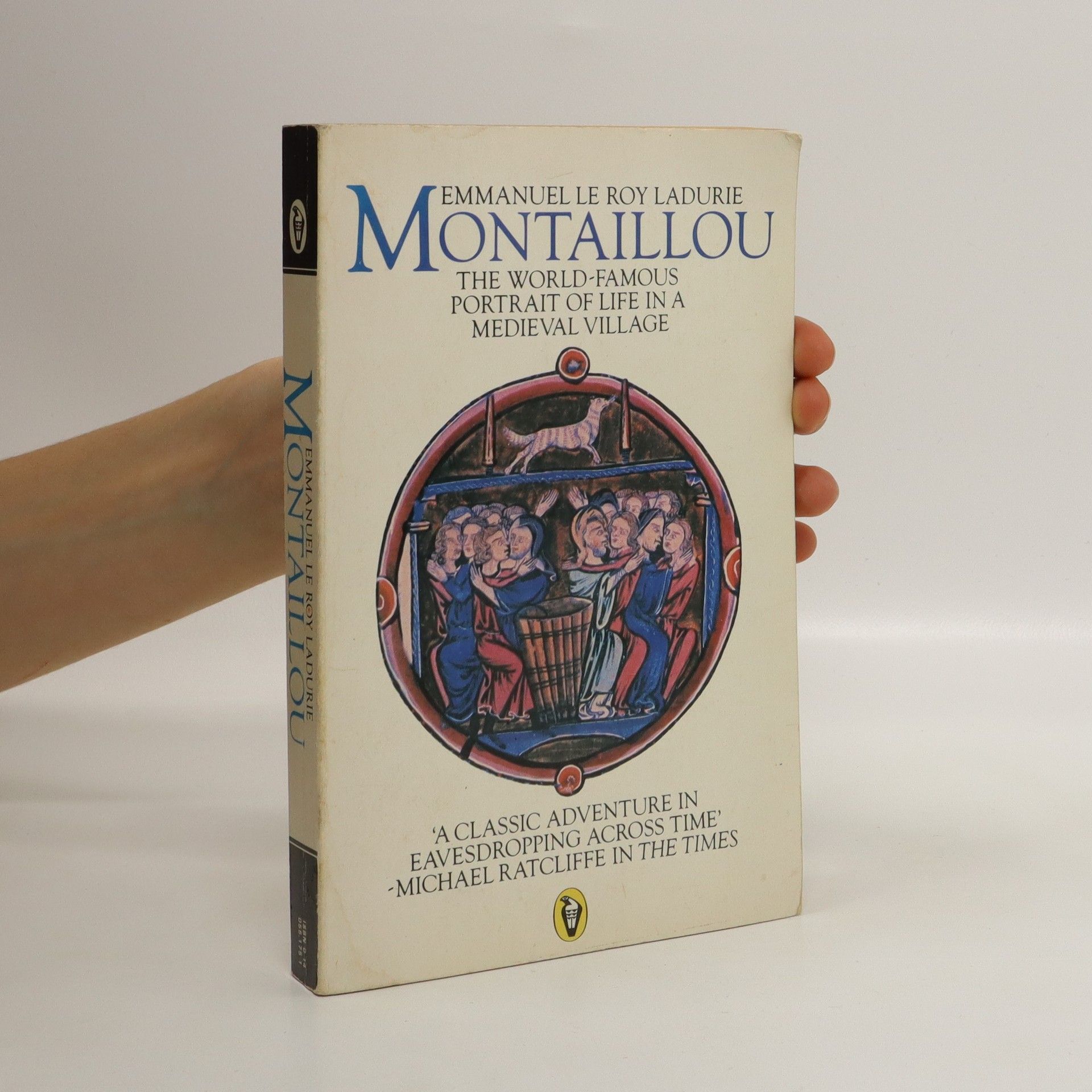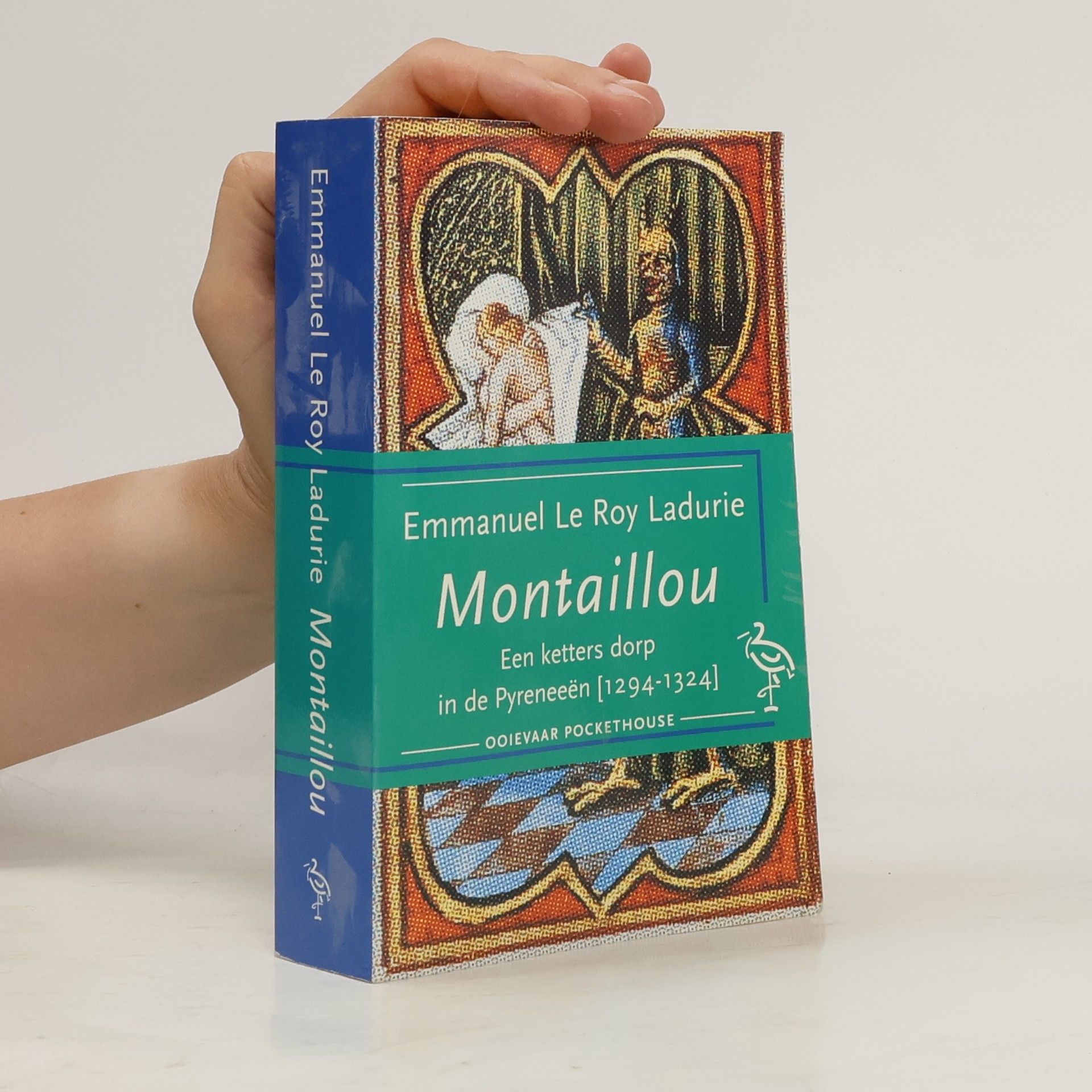Aan de hand van een gedetailleerd Inquisitie-dossier schetst de Franse historicus een beeld van leven en levensbeschouwing van de bewoners van het Kathaarse Pyreneeëndorp Montaillou rond het begin van de veertiende eeuw.
Emmanuel Le Roy Ladurie Boeken
Emmanuel Le Roy Ladurie was een Franse historicus wiens werk zich voornamelijk richtte op de geschiedenis van het boerendom in Languedoc tijdens het Ancien Régime. Zijn uitgebreide oeuvre kenmerkt zich door een diepe interesse in het dagelijks leven en de sociale structuren van het verleden. Ladurie maakte gebruik van nauwgezet onderzoek om het verleden tot leven te brengen en bood lezers inzicht in de ervaringen van gewone mensen. Zijn benadering van geschiedenis is invloedrijk geweest en heeft veel andere geleerden geïnspireerd om de minder gedocumenteerde aspecten van historische gebeurtenissen te onderzoeken.







De eeuw van de Famille Platter (1499-1628)
- 463bladzijden
- 17 uur lezen
De geschiedenis van een Zwitserse familie op basis van hun eigen geschriften, waarbij vele aspecten van het leven in de zestiende eeuw aan de orde komen.
Tithe and Agrarian History from the Fourteenth to the Nineteenth Century
An Essay in Comparative History
- 220bladzijden
- 8 uur lezen
Focusing on the tithe, this book explores its significance within the agrarian ancien regime, particularly in pre-1789 France. It delves into the historical implications of this levy, providing insights into traditional societies and their economic structures. Historians will find the examination of the tithe's role in shaping social and economic dynamics both informative and engaging.
Presents an account of day-to-day life in a medieval French village. Using records gathered by the Catholic Church in its pursuit of heretics, this book shows the lives of a cast of village characters.
PEASANTS OF LANGUEDOC
- 384bladzijden
- 14 uur lezen
Hailed as a pioneering work of "total history" when it was published in France in 1966, Le Roy Ladurie's volume combines elements of human geography, historical demography, economic history, and folk culture in a broad depiction of a great agrarian cycle, lasting from the Renaissance to the Enlightenment. It describes the conflicts and contradictions of a traditional peasant society in which the rise in population was not matched by increases in wealth and food production. "It presents us with a great study of rural history, an analysis of economic change and a description of a society in movement that has few equals." -- Washington Post Book World "It is without any doubt one of the most important, if not the most important, monograph of the French Annales school of socio-economic historians written in the last decade." -- Canadian Historical Review
Emmanuel Le Roy Ladurie is recognized as a highly original and imaginative historian, celebrated for his versatility over the past two decades. His work has garnered significant acclaim, particularly noted by Lawrence Stone in the New York Review of Books, highlighting his impactful contributions to the field of history.
Book by Ramel, Stig, O'Brien, Conor Cruise, Le Roy Ladurie,Emmanuel
Une vision de la cour de Louis XIV à travers les "Mémoires" de Saint-Simon. Véritable théoricien de la hiérarchie, Saint-Simon propose implicitement une vision de l'inégalité et de la hiérarcie qui trouve ses racines dans une ancienne tradition occidentale. Tout est vu au prisme de la hiérarchie, le politique comme le sacré, les cabales comme la sexualité, et même l'usage du tabac
Littérature : textes et documents, XVIIIe siècle
- 495bladzijden
- 18 uur lezen


